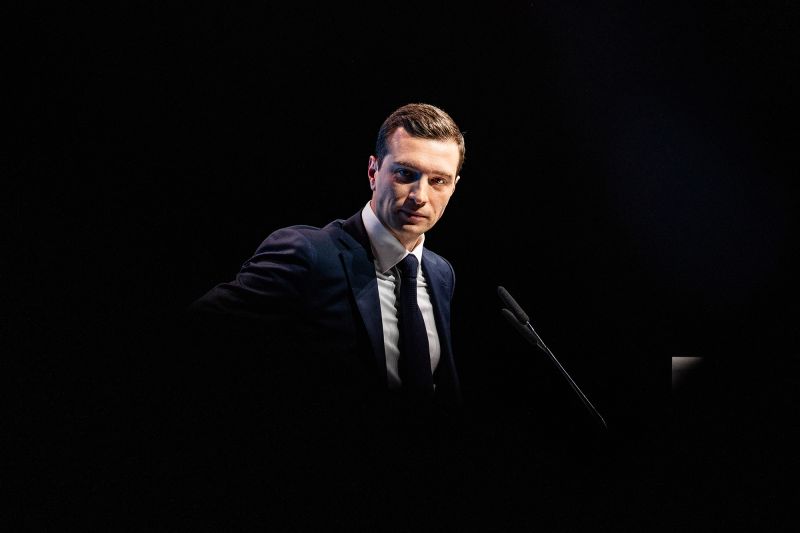The French political scene is simmering with an excitingly new yet rather controversial figure. Jordan Bardella, a young politician of just 28 years, has emerged with hopes and intentions to become the future prime minister of France. He is a prominent member of and spokesperson for the far-right party National Rally (formerly National Front – Le Front National).
Born on September 13, 1995, in Seine-Saint-Denis, Bardella’s journey into politics was sparked from a young age. He hails from a working-class upbringing and experienced first-hand the problems associated with unemployment and insecurity. Observing the disparities created by the socio-economic class, Bardella became driven towards political mobilization and sought to bring radical change. He joined Marine Le Pen’s National Front in 2012, at the age of 16, and quickly climbed the party’s hierarchal ladder due to his oratory skills and political conviction.
Bardella’s tenacity and ambition are evident in his quick rise to prominence. At 23, he led his party’s list in the 2019 European Parliament elections, securing a lead over the LREM party of President Emmanuel Macron. Bardella now holds a seat as a Member of the European Parliament and is the vice president of the National Rally.
The vision that Bardella carries, and the National Rally party collectively, if they come into power, promises significant changes across France’s political, economic, and social spheres. Emphasizing national sovereignty, tighter immigration control, protectionism, and law and order, National Rally prides itself as the guardian and champion of “forgotten France” – those disenfranchised by globalization, rapid socio-cultural shifts, and economic stagnation.
Their policies focus on tackling immigration, which they believe is directly linked with national security and is the source of socio-cultural tensions. If in power, the National Rally promises to drastically limit immigration and restore control of French borders. The party has voiced its intention to withdraw from the Schengen Area which allows the free movement of people across many European countries.
The economic strategy of Bardella’s party leans heavily towards protectionism, with measures to support French businesses and workers over foreign competitors. This includes ‘national preference’ in social benefits – prioritizing French citizens over residents of other nationalities. The party also promises to protect France’s welfare system, aiming to invest in healthcare, public services, and security, while proposing a retirement age cut to 60.
Bardella and his party have been particularly vocal about combating Islamism in France, asserting that it threatens the French way of life. They promote a strict secularism that veers towards curtailing the expressions of religious identities in public spaces. If they secure power, it’s expected that they will introduce policies that reinforce these beliefs, which some critics say border on Islamophobia.
However, the Bardella-led National Rally party faces intense scrutiny and criticism. While the party consistently maintains a significant presence in French politics, detractors point to its divisive rhetoric, hardline policies, and alleged xenophobia. They argue that the populist right-wing party’s rise can potentially intensify social divisions and harm France’s reputation in the international community.
In conclusion, Jordan Bardella, as a young candidate vying for France’s prime minister position, epitomizes a surging wave of far-right politics in the heart of Europe. The political discourse he and his party, the National Rally, bring into play, if they gain power, herald a significant shift in France’s current socio-political direction. However, such a drastic political change would not be without its consequences, sparking numerous debates and criticisms regarding the party’s policies and motivations.




